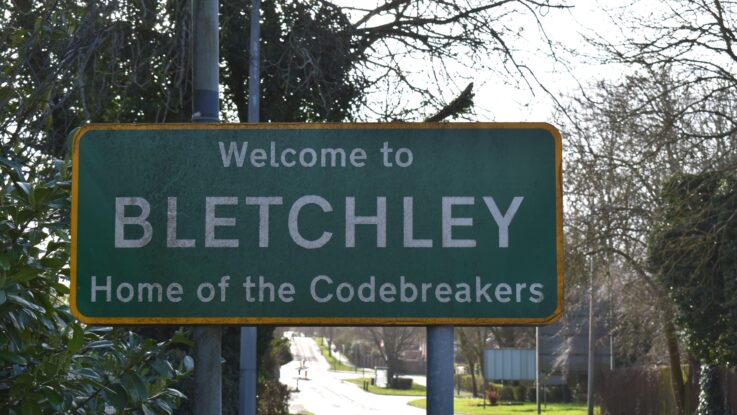
The US, UK, China, and European Union — some 28 countries total — have signed onto the Bletchley Declaration, a cooperative agreement to manage the risks associated with emerging artificial intelligence (AI) tools, in particular the technology’s cybersecurity.
“Countries agreed substantial risks may arise from potential intentional misuse or unintended issues of control of frontier AI, with particular concern caused by cybersecurity, biotechnology and disinformation risks,” the British government, which hosted the affiliated AI Safety Summit at Bletchley Park, said about the namesake agreement.
Famous for its World War II role as a hub for cryptographic and computing breakthroughs, the once top-secret Bletchley Park is located in Milton Keynes, about 50 miles outside of London. In addition to being the birthplace of the first programmable computer, Colossus, the lab was where teams of codebreakers, including Alan Turing, cracked the German Enigma code. Today, Bletchley Park is a museum and homage to those founders of computer science.
Agreement Likely to Drive Important Conversations
Cybersecurity experts are applauding the global agreement.
“AI safety and AI innovation are not in conflict,” Poppy Gustafson, CEO of Darktrace, explains. “They go hand in hand. In this journey to build these exciting new technologies that can substantially benefit society, the safer we make AI, the faster we’ll be able to realize the opportunities.”
Likewise, Casey Ellis, founder and chief technology officer of Bugcrowd, says the agreement demonstrates global leaders are taking a proactive approach to developing safe AI.
“The Bletchley Declaration on AI safety represents a significant step forward in ensuring the safe and responsible development of this transformative technology,” Ellis says. “By highlighting cybersecurity and privacy protection concerns, the declaration shows a worldwide commitment to providing a strong foundation for responsible AI innovation by its signatories.”
According to the UK, the Declaration established agreement on the shared responsibilities between the governments and a process for global collaboration on AI safety and security research.
The Bletchley Declaration signing comes just days after the Biden White House issued a broad executive order setting new standards for AI safety and cybersecurity.
“While I am mindful of the risks, I remain an AI optimist,” Gustafson says. “I’m excited to see how the conversation evolves — and what action it will drive.”